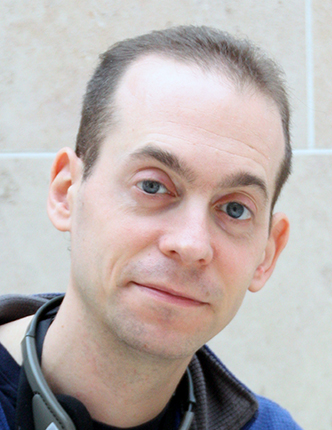I’m incredibly grateful to have been given the opportunity to return to research whilst still balancing the needs of my family
Daniel was an aspiring cognitive neuroscientist. He achieved four publications directly from his PhD work at Cambridge University, including one in the journal ‘Science’ and another in ‘Neuron,’ before beginning a post-doc in the same lab as his PhD.
I was struggling to get back into academia due to a lack of part time positions
However, Daniel’s wife was suffering from a severe mental health disorder. To compound matters, her condition was not properly diagnosed or appropriately treated during this time. Her health deteriorated severely and she was forced to take extended sick leave from her own post-doctoral position within Cambridge University.
Daniel said: “It was a very challenging time. Maintaining a full-time position in a demanding job away from home became untenable. I decided that the best thing to do to help my wife recover fully would be to take a career break, but also try to partially keep up with the literature, by writing a popular science book.”
Two years later, once his wife’s condition was under better management, Daniel agreed to start a new three-year contract position at Sussex University, on a part time basis. He gained four further publications during this time.
Daniel said: “I applied widely for lectureships after my position finished, but wasn’t shortlisted once despite my publishing credentials and track record. I was even unofficially told that hiring panels were almost exclusively interested in publications over the last few years, and that my career break counted against me.”
Daniel’s wife was still far from well and they now had a 3-year-old daughter to care for as well. Despite searching, he was unable to find any part time positions.
Daniel said: “I was sad to not be able to remain in academia, but felt that the culture was generally too inflexible to cope with my particular circumstances.”
By late 2015, Daniel’s wife was now on medication that made her significantly more stable, and his daughter was now in primary school. So, a return to science seemed a much more feasible option. With the friendly and understanding support of his eventual line manager, Daniel made an exhaustive search of suitable grants.
Initially this, too, was a frustrating business, as he was ineligible for most, because of the length of his post-PhD years. In addition, the only grants that included flexibility in eligibility or position for family reasons were available only to women. However, Daniel also came across the Daphne Jackson Trust.
Daniel said: “The Daphne Jackson Trust Fellowship really seemed like an oasis in a desert to me – and I sorely wish that the other grant bodies would adopt its considerate, flexible approach. It was ideal for me at the time, taking account of my career break, but still offering me a chance to return to a scientific career and enabling me to retrain and update my skills. As the Fellowship is part time, it means I have the flexibility to look after both my wife and daughter on the occasions that I am needed, for instance, to provide after-school or holiday care for my daughter, if my wife is too unwell to do this. My supervisor is aware of my family situation and is very supportive.”
Daniel is based within the psychology department at Cambridge University. There he is exploring how conscious level and arousal interacts with our ability to think and remember, how this changes as we age and what features of the brain underlie these changes.
Daniel said: “I’m thrilled to finally be working in the lab again, and thrilled too that I am once more in a career I love, thanks to the Daphne Jackson Trust.”
Daniel’s tips for returners
- Keep up with the literature. Forge time each week to read key current papers.
- Build your professional network. Reconnect with your old lab, or gain an affiliation with a local or potential future lab, to sit in on meetings, or attend local symposia.
- Maintain self-belief. Returning to science is a process fraught with self-doubts for even the most confident amongst us. Try to avoid such doubts, and instead focus on your academic achievements, and remind yourself that you are as capable as ever of making new discoveries, and contributing positively to your new lab and research field.
Dr Bor’s Fellowship was sponsored by the Biotechnology and Biological Sciences Research Council (BBSRC). The Fellowship was hosted by the University of Cambridge under the supervision of Dr Tristan Bekinschtein.

